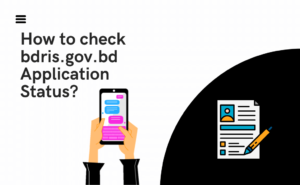Smart contracts are self-executing contracts with the terms of the agreement between buyer and seller being directly written into lines of code. They offer a decentralized, secure, and transparent way to carry out transactions without the need for intermediaries. However, the complexity of smart contracts and the potential for unintended consequences make testing and validation critical. This is where transaction simulation comes in.
Simulating Transaction Flows in Smart Contract Deployments

Transaction simulation involves creating a virtual environment that mimics the conditions of a real-world transaction. This allows developers to test how a smart contract will behave under various scenarios without actually deploying it to the blockchain.
One of the benefits of transaction simulation is that it enables developers to test the performance and scalability of their smart contracts. By simulating a large number of transactions, developers can determine whether their contract can handle the expected volume of transactions without significant delays or errors.
Another advantage of transaction simulation is that it allows developers to test the interaction between smart contracts and external systems. For example, a smart contract that interacts with a payment gateway can be tested to ensure that it can process payments correctly and securely.
Testing Smart Contract Functionality and Interactions
Smart contracts can be complex, with multiple functions and interactions with other contracts and systems. Testing the functionality and interactions is critical to ensure that the smart contract behaves as expected.
Transaction simulation can be used to test the functionality of individual functions within a smart contract. By simulating a transaction that calls a specific function, developers can test whether the function works as intended and returns the expected results.
Transaction simulation can also be used to test the interaction between smart contracts. For example, a smart contract that interacts with a token contract can be tested to ensure that it can correctly transfer tokens and update balances.
Also Read: Stile App For Android/iOS [Online Learning Application]
Verifying Transaction Execution and State Changes
Transaction simulation can be used to verify that a smart contract executes as expected and that the state of the contract is updated correctly. By simulating a transaction, developers can check that the contract performs the intended actions and updates the state of the contract as expected.
Transaction simulation can also be used to test edge cases and error conditions. For example, a smart contract that interacts with an external system may need to handle unexpected errors. By simulating these error conditions, developers can ensure that the contract behaves appropriately.
Also Read: 7 Best School Life Simulation Games For Android
Detecting and Preventing Security Vulnerabilities through Simulation
Security is a critical consideration in smart contract development. Transaction simulation can be used to detect and prevent security vulnerabilities before a smart contract is deployed to the blockchain.
By simulating various attack scenarios, developers can identify potential security vulnerabilities and take steps to address them. For example, a smart contract that handles large sums of money may be vulnerable to a reentrancy attack. By simulating this attack, developers can identify the vulnerability and take steps to prevent it.
Another benefit of transaction simulation is that it can help developers ensure that their smart contracts are compliant with relevant regulations. By simulating transactions that involve sensitive data, developers can ensure that their smart contracts meet regulatory requirements.
Conclusion
Transaction simulation is a critical tool for testing and validating smart contracts. It allows developers to test the performance, functionality, and security of their contracts before deploying them to the blockchain. By simulating various scenarios, developers can identify and address potential issues, ensuring that their smart contracts behave as intended.
If you’re looking for a transaction simulator for your smart contract development, check out https://rpcfast.com/transaction-simulator. It’s a powerful tool that allows you to simulate transactions and test the behavior of your smart contracts in a virtual environment.
Author Profile
-
Raj Singh is a highly experienced digital marketer, SEO consultant, and content writer with over 8 years of experience in the industry.
As a content writer, Raj has a talent for crafting engaging and informative content that resonates with audiences. He has a keen eye for detail and a deep understanding of SEO best practices.
Latest entries
 ApplicationFebruary 20, 2024Maha Food Hall Ticket 2024 Download Now- with Exam Dates
ApplicationFebruary 20, 2024Maha Food Hall Ticket 2024 Download Now- with Exam Dates ApplicationFebruary 18, 2024tsbie m services hall ticket download Inter 1st, 2nd year [2024]
ApplicationFebruary 18, 2024tsbie m services hall ticket download Inter 1st, 2nd year [2024] AppsFebruary 18, 2024Register on Nivesh Mitra App and Download Certificate/Noc
AppsFebruary 18, 2024Register on Nivesh Mitra App and Download Certificate/Noc AppsFebruary 17, 2024Cozovmoni App Download for Android (2024)-Cozovmoni.com
AppsFebruary 17, 2024Cozovmoni App Download for Android (2024)-Cozovmoni.com





